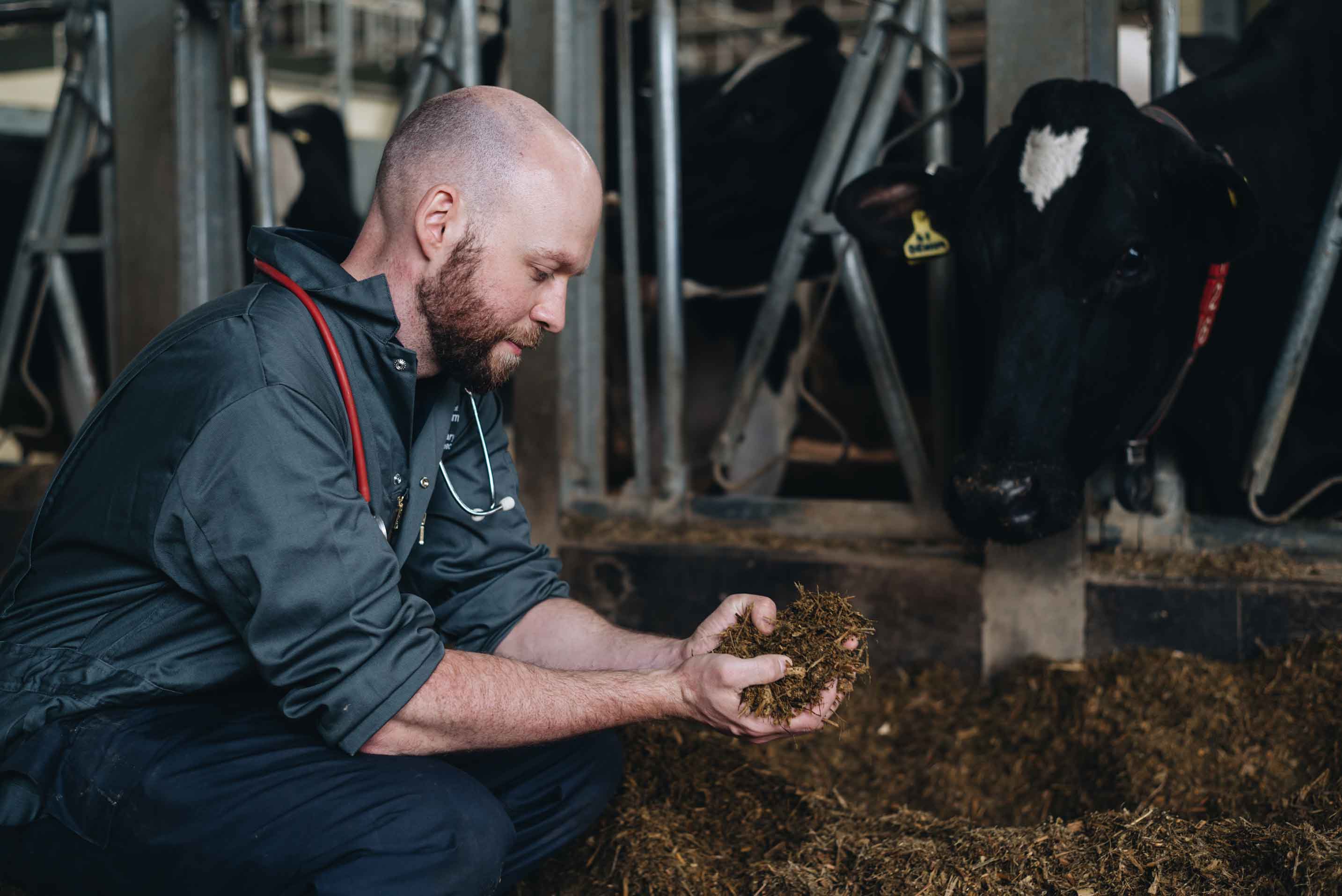Monday, 01 February 2021
A new study looking at colostrum hygiene on British dairy farms has shown that by making a few simple changes to cleaning protocols, farmers could significantly minimise the risk of disease in calves.
The study, published in Frontiers in Veterinary Medicine and led by experts from the School of Veterinary Medicine and Sciences at the University of Nottingham, is one of the first to look at colostrum hygiene in Great Britain.
Colostrum is the first milk produced after the delivery of a newborn, and is produced by humans, cows and other mammals before milk is released. It is very nutritious and contains high levels of antibodies, which are immune proteins essential to protect calves against infections.
Calves are born with zero immunity and rely entirely on colostrum to gain immunity against disease. It is essential that calves receive an adequate quantity of good quality colostrum as soon as possible after birth. High bacteria levels in colostrum can both increase the chances of calf scour and reduce the levels of immunity absorbed.
Several studies have provided estimates of colostrum hygiene at a national level, although to date this has not been conducted in Great Britain. In this new study, experts analysed data from 328 colostrum samples from 56 British dairy farms.
Samples collected from collection and feeding equipment had higher levels of bacteria than those collected directly from the cows’ teat, suggesting that whilst colostrum from the cow is relatively low in bacterial levels, improperly cleaned equipment can be a major source of bacterial contamination. Over one third of samples collected from collection or feeding equipment were over the threshold for high bacterial levels and represent a significant risk to the health of calves.
 Dr Robert Hyde
Dr Robert Hyde
Dr Robert Hyde, one of the researchers on the study, said: “By analysing colostrum collection protocols on the farms, we were able to identify a small number of management practices likely to have a substantial impact on colostrum hygiene for the majority of farms. For example, the use of scalding hot water to clean collection and feeding equipment could reduce bacteria levels by over 90% compared with using cold water only. Less than half of farms used scalding hot water to clean colostrum collection and feeding equipment, suggesting there are a large number of farms that could make this simple change.”
Key recommendations based on the research to reduce bacterial levels in colostrum suggest protocols should include the cleaning of colostrum collection and feeding equipment after every use with hot water as opposed to cold water, and hypochlorite or peracetic acid as opposed to water or parlour wash. Cows' teats should be prepared with a pre-milking teat disinfectant and wiped with a clean, dry paper towel prior to colostrum collection, and colostrum should be pasteurized where possible. The AHDB guide to colostrum hygiene can be found here.
This study provides a first look at bacteria levels in Great Britain, and the results suggest there are a few simple changes to collection and cleaning protocols that could have a significant impact on colostrum hygiene levels on British dairy farms. By making these simple changes there is likely to be significant improvement in colostrum hygiene, which is essential in minimising the risk of disease and ensuring the optimum health and welfare of calves on dairy farms.”
The full study is open access and can be found here.
The University of Nottingham herd health toolkit contains a “Colostrum bacteriology” section, where vets and farmers can use the results from this study to see what management changes might have the largest impact on colostrum hygiene, can be found here.
Story credits
More information is available from Dr Robert Hyde in the School of Veterinary Medicine and Sciences at the University of Nottingham at Robert.Hyde1@nottingham.ac.uk
Notes to editors:
About the University of Nottingham
Ranked 24 in Europe and 15th in the UK by the QS World University Rankings: Europe 2024, the University of Nottingham is a founding member of Russell Group of research-intensive universities. Studying at the University of Nottingham is a life-changing experience, and we pride ourselves on unlocking the potential of our students. We have a pioneering spirit, expressed in the vision of our founder Sir Jesse Boot, which has seen us lead the way in establishing campuses in China and Malaysia - part of a globally connected network of education, research and industrial engagement.
Nottingham was crowned Sports University of the Year by The Times and Sunday Times Good University Guide 2024 – the third time it has been given the honour since 2018 – and by the Daily Mail University Guide 2024.
The university is among the best universities in the UK for the strength of our research, positioned seventh for research power in the UK according to REF 2021. The birthplace of discoveries such as MRI and ibuprofen, our innovations transform lives and tackle global problems such as sustainable food supplies, ending modern slavery, developing greener transport, and reducing reliance on fossil fuels.
The university is a major employer and industry partner - locally and globally - and our graduates are the third most targeted by the UK's top employers, according to The Graduate Market in 2024 report by High Fliers Research.
We lead the Universities for Nottingham initiative, in partnership with Nottingham Trent University, a pioneering collaboration between the city’s two world-class institutions to improve levels of prosperity, opportunity, sustainability, health and wellbeing for residents in the city and region we are proud to call home.
More news…